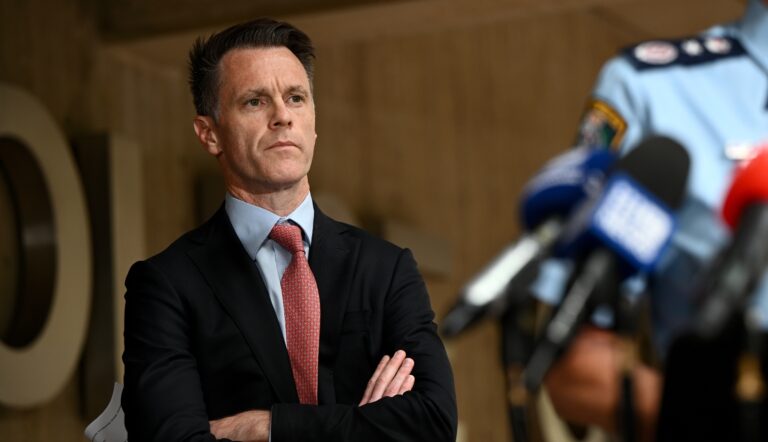
Measles defy record vaccination

BY ALANA LEVENE
A flurry of measles outbreaks could make 2019 Australia’s second-highest year of reported cases since the late 1990s, according to government health officials.
Australia is on track to reach or surpass 2014’s nationwide high of 339 cases, according to the National Notifiable Diseases Surveillance System. More cases were recorded in the first three months of 2019 than total cases in some recent years.
In NSW, 37 people have been infected with measles since Christmas, health officials said.
Despite the rise in cases, NSW has reached record vaccination rates, with more than 95 per cent of five-year-olds vaccinated against measles, according to the latest Annual Immunisation Coverage Report. Rates for one-year-olds has surpassed 95 per cent, the herd immunity figure.
Still, anti-vaccination sentiment is growing in some areas.
In the shop window of Natural Progression Nutrition and Health at Bondi Beach, a book cover reads VACCINE EPIDEMIC: How Corporate Greed, Biased Science, and Coercive Government Threaten Our Human Rights, Our Health, and Our Children.
Measles coming in from abroad
Outbreaks in popular tourist destinations, including South East Asia, have heightened the risk for the potentially fatal disease being imported into Australia, according to a NSW Health spokesperson.
“Most cases have involved holidaymakers returning to Australia with the disease,” the spokesperson said.
In recent weeks, people unknowingly infected with measles have passed through the Sydney Opera House, Paddy’s Market, Central Station, and various cafes and shopping centres. The most recent report came from Dubbo, according to NSW Health. University students, visitors from abroad, and infants were among those infected.
Measles is highly contagious, spreading through the air when an infected person coughs or sneezes. It can linger in the air for up to 30 minutes, according to NSW Health Director of Communicable Diseases, Vicky Sheppeard.
The first symptoms include fever, sore eyes and a cough. Within days, a red, blotchy rash spreads from the head to the rest of the body.
It usually takes anywhere from 10 to 18 days to notice the first symptoms after exposure, according to Sheppeard.
Herd immunity ideal
Experts say vaccination is the best protection against the extremely contagious disease.
The NSW Government poured more than $100 million into this year’s Immunisation Program budget, which includes commonwealth and state vaccines. The measles-mumps-rubella vaccine is free for anyone born during or after 1966 who hasn’t already had two doses.
Herd immunity reduces the spread of measles if it enters an area, and protects infants and people with weakened immune systems who aren’t able to be vaccinated, according to Sheppeard.
Two infants were infected in January and February, both of whom developed measles on returning to Sydney from South East Asia.
Earlier this month, two more infants, an eight-month-old and an 11-month-old, caught the infection in the Haymarket area near World Square and the Eastwood area, respectively.
All of the babies were too young to receive their routine measles vaccine, according to NSW Health.









